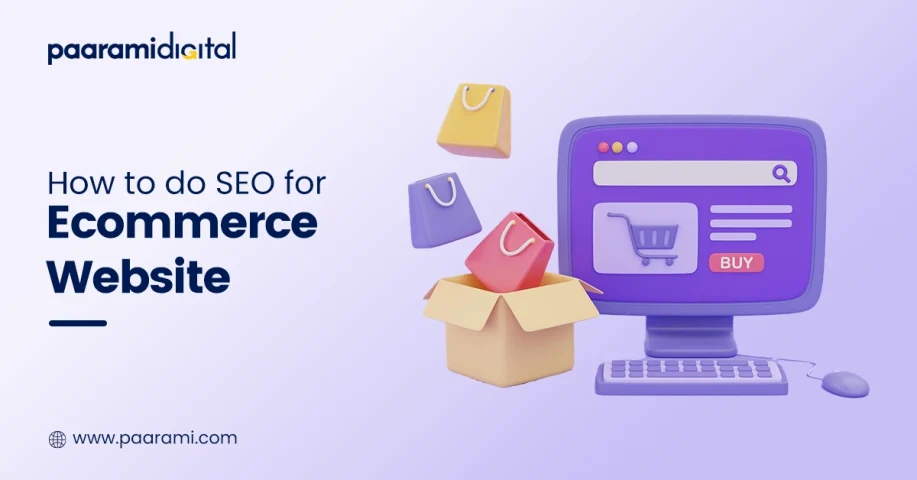
What is Local SEO?
January 9, 2025
Why is SEO Important for E-commerce?
January 9, 2025SEO, or Search Engine Optimization, is essential for e-commerce websites to attract more visitors and increase sales. It helps your website appear higher in search engine results when people look for products you sell. Let’s go through some simple steps to improve your e-commerce website’s SEO.
- Choose the Right Keywords
The terms or phrases that individuals enter into search engines while trying to find anything are known as keywords. For an e-commerce website, focus on:
- Product-Specific Keywords: Use terms related to your products, like “best running shoes” or “organic skincare products.”
- Long-Tail Keywords: These are longer and more specific phrases, like “comfortable running shoes for beginners.” They may have less competition and attract buyers ready to purchase.
Use tools like Google Keyword Planner or Ubersuggest to find the best keywords for your website.
- Optimize Product Pages
The core of any e-commerce website is your product pages. Here’s how to optimize them:
- Write Clear Titles: Use your main keyword in the product title.
- Create Detailed Descriptions: Describe your product with useful information and include keywords naturally.
- Use High-Quality Images: Add clear, attractive photos and use image alt tags with keywords.
- Add Reviews: Customer reviews improve trust and help your page rank higher.
- Improve Website Speed
A slow website can drive customers away. To improve your site speed:
- Compress images to reduce their size.
- Use a fast-hosting service.
- Minimize unnecessary code and plugins.
Improve websites score higher in search results and offer a better user experience.
- Make It Mobile-Friendly
Many people shop on their phones, so your website should look great and work smoothly on mobile devices. To make sure your website adjusts to various screen sizes, use responsive design.
- Use Internal Linking
Use pertinent keywords to connect your pages. For example, if you sell shoes, you can link a blog about “what is Local Seo” to your product page. Internal links keep users on your site longer and aid search engines in understanding its structure.
- Focus on Navigation
A simple and clear menu helps visitors find what they need quickly. Use categories and filters to make browsing easy. For example, if you sell clothing, organize products by type, size, and price.
- Get Backlinks
Backlinks are links from other websites to yours. They let search engines know that your website is significant and reliable. To get backlinks:
- Partner with bloggers to review your products.
- Share valuable content, like guides or infographics, that others want to link to.
- Create Quality Content
Create a blog to provide helpful advice and answers to frequently asked consumer issues. For example, if you sell gardening tools, write about “5 Easy Tips for Growing Roses at Home.” Quality content helps attract visitors and improves your SEO.
- Use Structured Data
Structured data is a way to tell search engines about your products in detail, such as price, availability, and reviews. Adding this helps your products show up as rich snippets in search results, making them more attractive to potential buyers.
- Monitor and Update Regularly
Use tools like Google Analytics and Google Search Console to check your website’s performance. Update your content and keywords regularly to stay ahead of the competition.
By following these steps, you can improve your e-commerce website’s SEO, attract more customers, and boost your sales. SEO takes time, but consistent efforts will bring long-term benefits to your online store.
FAQs
What are product-specific keywords in e-commerce SEO?
Product-specific keywords are terms directly related to the products you sell, such as “best running shoes” or “organic skincare products.”
How can I optimize my product pages for SEO?
Use clear titles with keywords, write detailed product descriptions, add high-quality images, and include customer reviews.
Why is website speed important for e-commerce SEO?
A faster website provides a better user experience and helps improve your search engine rankings, reducing bounce rates.
How does internal linking improve e-commerce SEO?
Internal linking helps users navigate your website and helps search engines understand your site structure, improving rankings.
What is structured data and why should I use it?
Structured data provides detailed information to search engines about your products, such as price, availability, and reviews, helping your products appear as rich snippets in search results.



